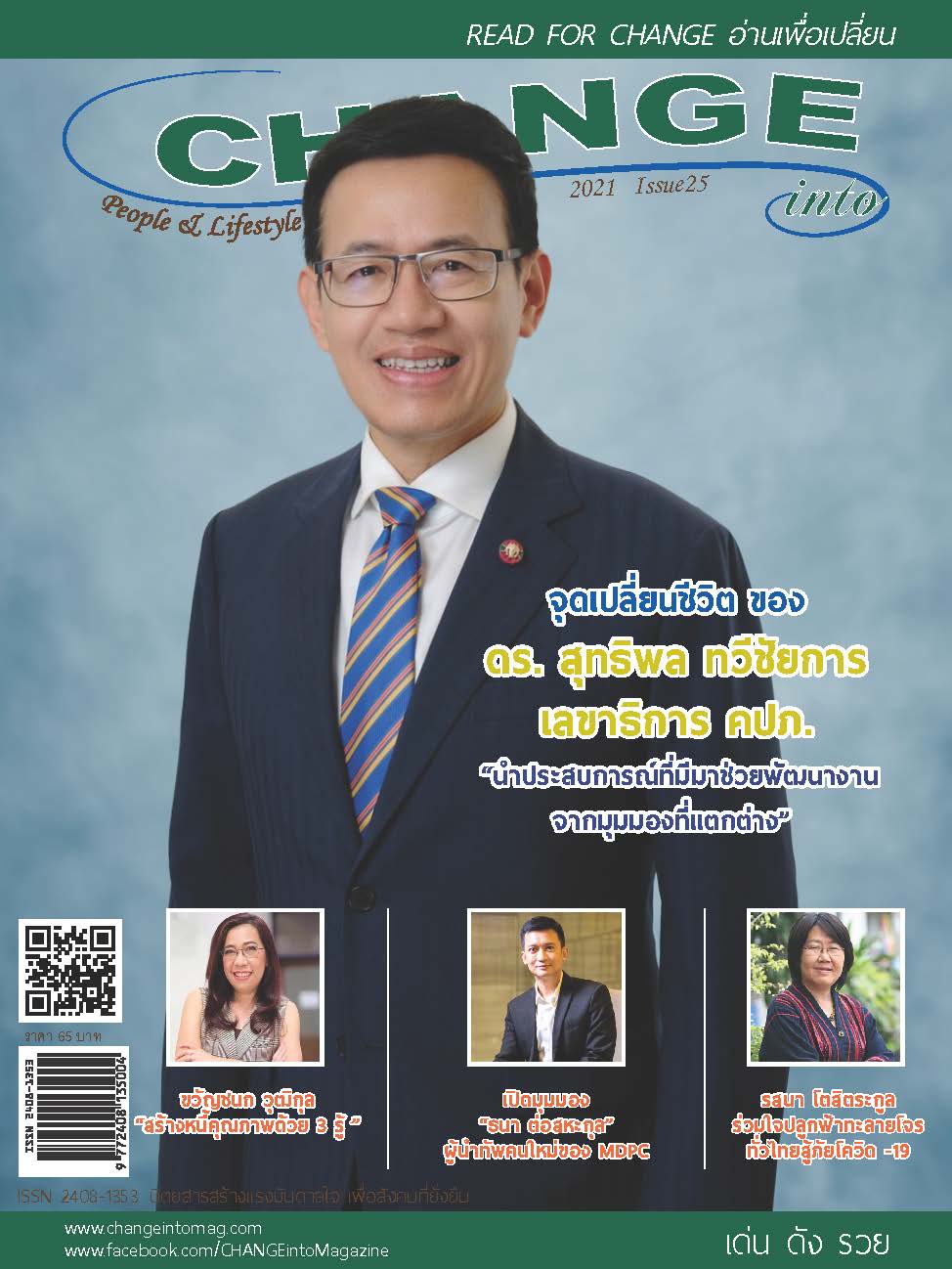เอสซีจี เสริมขีดความสามารถผู้ประกอบการพลาสติก รับมือ “วิกฤตสงครามการค้าจีน-สหรัฐฯ” ในงานสัมมนาลูกค้า “SCG Chemicals Digest 2019”

เอสซีจี เสริมขีดความสามารถผู้ประกอบการพลาสติก รับมือ “วิกฤตสงครามการค้าจีน-สหรัฐฯ”
ในงานสัมมนาลูกค้า “SCG Chemicals Digest 2019”
ธุรกิจเคมิคอลส์ เอสซีจี จัดงานสัมมนาลูกค้า SCG Chemicals Digest 2019 หัวข้อ “ทันกระแสโลก: สงครามการค้าจีน-สหรัฐฯ” เพื่อนำเสนอมุมมองเศรษฐกิจ ความผันผวน ความท้าทาย และวิเคราะห์สถานการณ์เตรียมรับมือกับสงครามการค้าโลกให้แก่ผู้ประกอบการพลาสติกกว่า 400 คน โดยได้รับเกียรติจากวิทยากรผู้ทรงคุณวุฒิและเชี่ยวชาญด้านสังคม วัฒนธรรม การค้า รวมถึงความเป็นมาของปัญหาสงครามการค้าระหว่างจีนและสหรัฐอเมริกาไว้อย่างน่าสนใจ อาทิ ศ. ดร.ธเนศ อาภรณ์สุวรรณ ธรรมศาสตราภิชาน มหาวิทยาลัยธรรมศาสตร์ ผู้ทรงคุณวุฒิและเชี่ยวชาญด้านประวัติศาสตร์สหรัฐอเมริกา และ ดร.อาร์ม ตั้งนิรันดร อาจารย์ประจำคณะนิติศาสตร์ จุฬาลงกรณ์มหาวิทยาลัย ผู้เชี่ยวชาญด้านประเทศจีน

นายธนวงษ์ อารีรัชชกุล กรรมการผู้จัดการใหญ่ ธุรกิจเคมิคอลส์ เอสซีจี เปิดเผยว่า ผลกระทบของสงครามการค้าระหว่างจีนกับสหรัฐฯ ส่งผลกระทบต่ออุปสงค์ของโลก และบรรดาผู้เชี่ยวชาญมีความกังวลเกี่ยวกับภาวะถดถอยทางเศรษฐกิจเพิ่มขึ้น สำหรับธุรกิจเคมิคอลส์ เอสซีจี ได้รับมือและปรับตัวกับสถานการณ์ดังกล่าวด้วยการเพิ่มประสิทธิภาพการใช้เทคโนโลยีดิจิทัลในการประเมินสถานการณ์ราคาและสั่งซื้อน้ำมัน ขณะเดียวกันได้มีการบริหารจัดการต้นทุน รวมทั้งการพัฒนานวัตกรรมสินค้าและบริการที่มีมูลค่าเพิ่ม
ด้าน นายศักดิ์ชัย ปฏิภาณปรีชาวุฒิ Vice President - Polyolefins and Vinyl Business ธุรกิจเคมิคอลส์ เอสซีจี กล่าวว่า จากสถานการณ์สงครามการค้าระหว่างจีนและสหรัฐฯ ส่งผลให้ราคาผลิตภัณฑ์ปิโตรเคมีในตลาดโลกผันผวนจากการปรับตามราคาน้ำมันที่ขึ้นลงอย่างรวดเร็ว และยังส่งผลต่อความผันผวนของอัตราแลกเปลี่ยนอีกด้วย นอกจากเรื่องสงครามการค้าแล้ว อีกประเด็นที่ส่งผลกระทบต่อธุรกิจพลาสติก คือวิกฤตที่เกิดจากขยะต่างๆ ที่มีการจัดการอย่างไม่เหมาะสม ส่งผลกระทบต่อสิ่งแวดล้อม และทำให้สัตว์ทะเลเสียชีวิต ธุรกิจเคมิคอลส์ เอสซีจี ไม่ได้นิ่งนอนใจกับวิกฤตนี้ จึงได้พยายามสร้างความเข้าใจ ตลอดจนร่วมมือกับหน่วยงานภาครัฐ ภาคเอกชน ตลอดจนภาคประชาสังคม ในการขับเคลื่อน “เศรษฐกิจหมุนเวียน หรือ Circular Economy” ด้วยการผลิต ใช้ และวนกลับ รวมถึงการบริหารจัดการขยะอย่างมีประสิทธิภาพ
ขณะที่ ศ. ดร.ธเนศ อาภรณ์สุวรรณ ธรรมศาสตราภิชาน แห่งมหาวิทยาลัยธรรมศาสตร์ กล่าวว่า ปัจจัยที่ทำให้เกิดสงครามการค้าระหว่างจีนและสหรัฐฯ เกิดจากนโยบายที่เน้น “อเมริกาก่อน” ของประธานาธิบดีโดนัลด์ ทรัมป์ เพื่อตอบสนองฐานเสียงของอเมริกันอนุรักษ์นิยมและกลุ่มเอียงขวา ซึ่งได้รับผลกระทบจากเศรษฐกิจโลกาภิวัตน์โดยเฉพาะจากความสามารถในการพัฒนาเศรษฐกิจและอุตสาหกรรมของจีนที่รวดเร็วและจะก้าวเหนือสหรัฐฯ ความขัดแย้งทางเศรษฐกิจและการเงินไม่มีทีท่าว่าจะยุติลงได้ง่ายแม้จะมีการเจรจาก็ตาม เพราะประธานาธิบดีทรัมป์ทำให้ความขัดแย้งนี้ ซึ่งจริง ๆ ยังไม่เป็น “สงคราม” กลายเป็นประเด็นทางการเมืองในประเทศไป ผลของการต่อรองครั้งนี้จะเป็นปัจจัยต่อชัยชนะหรือความพ่ายแพ้ในการเลือกตั้งประธานาธิบดีสมัยต่อไปของทรัมป์ ปัญหาความขัดแย้งกับจีนเปิดโอกาสให้ทรัมป์ได้ใช้วิธีการที่เขาถนัด นั่นคือศิลปะการต่อรอง แต่เจ้าหน้าที่ในกระทรวงต่างๆ ที่เกี่ยวข้องจะทำงานได้ยากลำบากที่สุด
สำหรับ ดร.อาร์ม ตั้งนิรันดร อาจารย์ประจำคณะนิติศาสตร์ จุฬาลงกรณ์มหาวิทยาลัย มีมุมมองว่า กลยุทธ์ของจีนในการรับมือสงครามการค้ากับสหรัฐฯในครั้งนี้ อาจสรุปได้เป็น กลยุทธ์ 4R ได้แก่ 1. RESIST – กลยุทธ์ซื้อเวลาและปลุกชาตินิยม 2. RETALIATE – กลยุทธ์ตีให้ตรงเป้า เอาให้พอเหมาะ เป็นการตอบโต้ด้วยการตั้งกำแพงสินค้าเกษตรและลดค่าเงินหยวน 3. REFORM – กลยุทธ์ปฏิรูปเศรษฐกิจภายในประเทศ ไม่ว่าจะเป็นการปฏิรูปรัฐวิสาหกิจ เปิดภาคเศรษฐกิจ และที่สำคัญคือ การลดการพึ่งพิงจากเทคโนโลยีภายนอกประเทศ และกลยุทธ์ที่สำคัญที่สุดคือ 4. REORGANIZE – จัดห่วงโซ่เศรษฐกิจใหม่ เน้นตลาดผู้บริโภคภายในประเทศและตลาดในประเทศเส้นทางสายไหมใหม่ รวมทั้งกระจายฐานการผลิตไปต่างประเทศ
ทั้งนี้ งานสัมมนาลูกค้า “SCG Chemicals Digest” เป็นงานสัมมนาวิชาการที่จัดขึ้นเป็นประจำทุกปี เพื่อเปิดมุมมองใหม่ๆ ให้กับลูกค้าของธุรกิจเคมิคอลส์ เอสซีจี ในด้านการตลาด เศรษฐกิจ รวมถึงสถานการณ์ปิโตรเคมี ซึ่งจะช่วยส่งเสริมศักยภาพในการบริหารจัดการธุรกิจของลูกค้าให้สามารถแข่งขันและเติบโตอย่างยั่งยืน
ผู้สนใจสามารถติดตามเนื้อหาที่น่าสนใจอื่นๆ ของธุรกิจเคมิคอลส์ เอสซีจี ได้ที่ http://www.scgchemicals.com/allaroundplastics และสามารถติดตามข่าวสารต่างๆ ของเอสซีจีได้ที่ http://scgnewschannel.com / Facebook: scgnewschannel / Twitter: @scgnewschannel หรือ Line@: @scgnewschannel
SCG readies plastic business owners for “China-U.S. Trade War”
in “SCG Chemicals Digest 2019.”
The Chemicals Business, SCG, hosted SCG Chemicals Digest 2019, entitled “Keeping up with the World: China-U.S. Trade War,” to present an analysis of the ongoing China-U.S. trade war as well as upcoming economic impact, fluctuation, and challenges to over 400 attending plastic business owners to enhance their preparedness. The seminar featured a panel of respected authorities on social sciences, cultures, trade, and the development of the China-U.S. trade war, including Professor Dr. Thanet Aphornsuvan, a Distinguished Fellow at Thammasat University and an expert on the U.S. History, and Dr. Arm Tungnirun, a law professor at the Faculty of Law, Chulalongkorn University, and an expert of China.
Tanawong Areeratchakul, President of the Chemicals Business, SCG, stated that the China-U.S. trade war has affected global demand, and experts are concerned that economic recession will exacerbate. The Chemicals Business has braced itself for the reverberations by enhancing the efficiency of its digital technology used for forecasting oil prices and placing orders while also managing costs and developing high value added products and services.
Sakchai Patiparnpreechavud, Vice President - Polyolefins and Vinyl Business of the Chemicals Business, SCG, said the oil price volatility brought on by the China-U.S. trade war has triggered fluctuation in both global petrochemical prices and exchange rates. In addition, another factor that impacts the plastic industry is the plastic waste crisis resulting from poor management that has impacted the environment and killed marine life. In response, the Chemicals Business has been working with government agencies, private businesses, and civil society organizations to educate the public, drive the make-use-reuse model of the circular economy, and ensure effective waste management.

Professor Dr. Thanet Aphornsuvan, a Distinguished Fellow at Thammasat University, said the key factor that triggered the trade war between China and the U.S. was the “America First” policy that President Donald Trump had pursued to appeal to conservative and right-wing Americans, who had been affected by the globalized economy and, in particular, China’s rapid economic and industrial development, which threatened to outpace the U.S. The resolution to the economic and financial conflict now seems to be nowhere in sight despite talks, as Trump has continued to politicize what is actually not yet a war; the outcome of future negotiations between the two sides will decide Trump’s re-election. While the conflict with China has given Trump the opportunity to show off the negotiation skills he is known for, it is the officials in different ministries who have borne the brunt of the situation.
Dr. Arm Tungnirun, a law professor at the Faculty of Law, Chulalongkorn University, described China’s strategies for coping with the U.S. in the trade war, which could be summarized as 4Rs 1) Resist – buying time and promoting patriotism; 2) Retaliate – enforcing embargoes on agricultural products and weakening the yuan; 3) Reform – reforming the domestic economy by reforming state enterprises and opening up its economic sector; and 4) Reorganize – rearranging its economic chain, refocusing on domestic consumer markets and the markets of the New Silk Road countries, and shifting some production overseas.
“SCG Chemicals Digest” is an annual seminar for the customers of the Chemicals Business, SCG. It is hosted to broaden the horizons of the attendees regarding marketing, economy, and the landscape of the petrochemical industry and enhance their management capability in order to ensure their competitiveness and sustainable development.
For more details about Chemicals Business, SCG, please visit http://www.scgchemicals.com/allaroundplastics or check out SCG’s latest news at http://scgnewschannel.com / Facebook: scgnewschannel / Twitter: @scgnewschannel or Line@: @scgnewschannel.



















